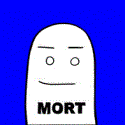|
Owlofcreamcheese posted:The poster isn't making a random parallel. Ah, okay, that totally explains it. Thanks. Yeah so barring some more specifics, the adventure might be good, but it hosed up in that it's as much a reference to any bureaucratic fuckery in human history as much as it is to the PRC from late Mao to Deng Xiaoping. Also, just gonna keep banging the drum that The Cultural Revolution and The Great Leap Forward are distinct, different things. These are not interchangeable. They are not words for the same thing. They were separate events.
|
|
|
|

|
| # ? May 25, 2024 00:47 |
|
Arivia posted:Inspiration from, yes, but that doesn't make it a parallel or an effort to interpret the actual political event. Unless I, not knowing a lot of Chinese history, missed the part where one area used their mutant powers to survive by eating the tainted food no one else could stomach and the resolution was turning even more people into Soylent INFRARED. I was just clarifying that the connection was explicit and prominent in the text. Not just some theory a poster decided. They aren't bringing up China because they are saying it's like that, it's a module that constantly has informational side bars tying specific wacky sci-fi stuff back to specific historical events.
|
|
|
|
Owlofcreamcheese posted:It's funny, the 80s versions of paranoia at least are so directly lampooning 1950s communist hysteria but then when they get to the point of it it's all pure 1980s communist hysteria. Yeah this is true as well, and the game does actually point this out a few times. At the same time though - in the later editions especially - Alpha Complex is portrayed as having at least some kind of marketisation; it's largely an excuse to let the PCs buy more stuff, but at the same time it does mean that higher clearances are generally portrayed in terms of their material wealth - I think the description for a violet clearance level sportscar is literally just "I am ridiculously wealthy and want others to know this too". In later versions as well people can just straight up buy their way to higher clearances as well, with an optional add-on of cake that is deliberately too high a clearance for your teammates to actually touch.
|
|
|
|
Xiahou Dun posted:Ah, okay, that totally explains it. Thanks. I'm very sorry that I didn't make that more clear. I can see how this would have been very frustrating. I definitely should have gone into more detail on the intentional relationship, especially when asking for someone not familiar with the module. I very much appreciate the thoughts you've offered, and I'll try to be more careful to not use distinct terms interchangeably. I know it bugs me when people claim something is unconstitutional by using a quote from the declaration of independence. They're somewhat related documents from the same time period, but they're also very distinct and shouldn't get mixed up.
|
|
|
|
Secret societies should definitely be mentioned as well when talking about Paranoia's politics. For anyone who hasn't played - at character generation, every player is made part of a secret society; these organisations are illegal in Alpha Complex, so they have to be kept, well, secret from the other players, but they also often require players to complete tasks for them clandestinely during their missions, and a good GM will often give different players mutually exclusive society tasks to complete. Secret societies also often provide members with training and equipment that might be useful, but is also often itself illegal as well. They add a fun bit of extra player conflict and unpredictability to games, and give players a good jumping off point to start backstabbing each other. There are over 20 different secret societies (so individual rulebooks usually don't use all of them) and many of them in-universe started out as totally legal social clubs or interest groups (so some of them still actually align with the computer's goals, despite being labelled as traitors). They range from concepts like hating all mutants (everyone in Alpha Complex is a mutant), to escaping outside, thinking the computer is Literal God, to the aforementioned communists who can be played from dead serious to ridiculously venerating the revolutionary ideas of Groucho Marx and John Lennon - Paranoia's pretty drat flexible when it comes to how satirical you want to be. At the same time as well though like a lot of things Paranoia can accidentally hew a lot closer to reality than it probably actually intends to - like with the CLA:  (this excerpt is from 2009's 25th anniversary edition, specifically High Programmers; but it may predate it, since that edition reuses a lot of text from XP and earlier) Disproportionation fucked around with this message at 19:36 on Oct 22, 2021 |
|
|
|
One thing I found interesting with the secret societies are the ones that are designated "class A," which is the lowest concern for treason. This kind of goes back to what I was saying earlier about our society having the rules, and simultaneously having "the rules." Some of the class A societies are: Death Leopard: Focuses on highly visible and bombastic stunts. A real world equivalent might be illegal street racing or explosion-based gender reveal parties. First Church of Christ Computer-Programmer: Religion is illegal, but they worship the computer. Free Enterprise: Black marketeers, gambling, vice, etc. Romantics: obsessed with old world artifacts, digging through old garbage dumps to find a mythical "Reebok" Sierra Club: Environmentalists living in an underground self-contained ecosystem where knowledge of "the outside" is classified. A common element in this is that despite these all being illegal activities, they tend to be useful illegal activities that help get things done. At worst they're keeping people pacified with busywork. It's the same kind of contradiction in the US with the illegal labor practices. Our economy depends on a large amount of labor being done by undocumented immigrants, and it's only possible if it's illegal. In the Paranoia universe, it'd be possible to have a team of highly vetted and trusted citizens tasked to collect potentially useful documents or goods from old dumps, but they'd expect to be compensated appropriately and the best finds would end up in museums or archives. If a high ranking citizen wants some cool old-world shoes for a party, this isn't going to work. It's politically very interesting to think about how many things that are condemned by society also provide enormous utility, and as a result there's never any sincere effort at reform by those in power.
|
|
|
|
Tnega posted:So, it is a setting where I can be so online that society collapses? Neat. Please, tell me more about being in magical hypercyberspace. I know Paranoia is the topic du jour now but actually no. Despite NHPs being beings that mostly interact with the world through the technology they have access to, "NHP escapes to the internet/omninet" doesn't feature much in the lore. While hacking works pretty much like you'd want it to in any scifi media, being so good at hacking that you can hack the laws of reality is out of scope for regular people and is almost exclusively in the hands of NHPs breaking beyond their bounds. OSIRIS-Prime, the source of OSIRIS-class NHPs, is specifically noted as being able of full-on reality-warping if let off its leash.
|
|
|
|
bewilderment posted:I know Paranoia is the topic du jour now but actually no. Please keep talking about Lancer, it sounds cool as heck.
|
|
|
|
To tie things together, much like Paranoia, despite AI/Godlike beings big a significant feature of the setting, the game is not really very concerned about the ins and outs of programming and cyberspace. It's much more about the day to day concerns of people and why they might need a team of people in mechs as tall as houses to go solve a problem for them. "Mud and lasers" was the original genre pitch. In anime terms, much closer to the 'real robot' than 'super robot' genre, although the official Lancer website notes that the game is really space fantasy hiding in some hard-scifi terminology. In a weird way both Lancer and Paranoia are both optimistic settings, I think. Paranoia is deeply cynical, yes, but people can and do frequently find workarounds for getting what they want from the eroding control of Friend Computer, and even the High Programmers aren't as power-hungry as 1984's Inner Party. You can imagine a future in Paranoia where Alpha Complex collapses. Lancer's setting starts out much more positive but has a murky path forward politically. FirstComm Union's goal of 'choking the stars with the living' has more or less succeeded. SecComm's goal of "by 'the living' we mean people that act and think like us" had more than a millennium of success in varying degrees before being overthrown. ThirdComm genuinely wants the best for people and is a positive force for most of humanity, but has inherited from SecComm: - A bunch of worlds who only know Union as an oppressor and cultural genocider and so who are leery about being re-contacted - A bunch of worlds who were dependent in some way or another on Union and who need recontacting - Corporations and corprostates born from SecComm in one way or another who flourished in Union's blindspots and who are steadily preparing to take more power even as they proclaim they're proudly part of Union - The Aun (not detailed too much except in draft supplements), a billions-strong stellar empire not part of Union, backed by their own Ra equivalent, and keenly aware that in terms of initial relations, Union (SecComm) Shot First - An immense amount of infrastructure that only works with the support of [enslaved / socially conditioned] potentially unstable NHPs to the point where it's considered to run a fully modern functional city without several NHP administrators Those first four are all flashpoints in some way for a Lancer team to make a difference but the last point is a background element, a looming threat to Union not in the sense that mass-NHP takeover is a threat (an NHP catastrophically cascading is seen as something you just accept the risk of and prepare for the worst for on a local scale) but for the fact that NHPs all "do their jobs willingly" and all have a case worker assigned, but also only do that job willingly because they've been grown/conditioned to think that way. That part of the setting is where the HORUS and Horizon groups come to the fore. HORUS is a bunch of shitposters who have little in common other than spreading omninet access as well as believing that humans and NHPs should have a hierarchical social organisation (who's on top? members of HORUS disagree). Their actual danger is that there appear to be people (or NHPs?) in it with real power to design and distribute weird dangerous mechs, both to PCs as well as to people who maybe shouldn't have them. Horizon, on the other hand, is not a weird shitposting cult. They're activists against the First Contact Accords. They believe in things like transhumanism and NHP equality and even have managed to clandestinely find ways to 'safely' unshackle NHPs by having them share a consciousness with multiple other humans (as detailed in The Long Rim supplement). They frequently get associated with HORUS despite them actually frequently clashing, both socially and occasionally violently. They do not have their own weird mechs. You can probably see the parallels with certain groups today.
|
|
|
|
Does the source book actually say NHP's are the cornerstone of the other paracausal tech? Like, they've made comp/cons (computers) fall to the wayside, but is that because they're needed, or just easy? And even if NHP's are needed for the existing infrastructure, there really isn't a good excuse for the fact they keep making new ones, is there? I know it's not supposed to be a question by design with an easy answer to leave it as something that the players can interact with or the GM can use as plot hooks, but it always struck me as a bit of a blind spot that 3rd com just kept printing more and more NHP's from the word go. I guess politically it's supposed to bring into question the nature of coercion and freedom and make you question those things. I think that's probably why they changed the fluff on just what resetting an NHP does from what it used to be in the early drafts to make the line that much blurrier.
|
|
|
|
Disproportionation posted:Paranoia's interesting because a lot of it is very red scare dystopia specifically - the computer is specifically most paranoid about communists specifically more than any other secret society or other threat (though its knowledge on what communism actually is is extremely superficial and implied to be based on 1950s cold war propaganda that it had on file) that it assumes communism is all encompassing of those aforementioned threats - every traitor must be a communist, and any failures of the system must surely be due to communist sabotage. But... the computer controls all resources and centrally plans the economy. How is this not a communist society.
|
|
|
|
Pointing that out is treason, citizen.
|
|
|
|
Charlz Guybon posted:But... the computer controls all resources and centrally plans the economy. How is this not a communist society. Sort of, there is wiggle room with regard to how much control the computer has over things (considering it barely works at the best of times) and the book does point out that the computer is possibly being a bit hypocritical in that regard, but at the same time the computer explicitly has an extremely fragmented idea of what communism actually is due to its only source being old US cold war propaganda. How Alpha Complex ultimately works is moot - the computer hates communists purely because whatever data it has tells it that communists are the enemy, and that leads to the cyclical logic that therefore anything a threat to Alpha Complex must be communist. Out of universe though the computer's extreme anticommunism is explicitly meant to be red scare commentary. Whether the designers intended alpha complex's economic system and political structure to be "ironic", I don't know. As mentioned earlier with Hunger, Paranoia has satirised actual communist systems as well; but that was well after the cold war had ended. edit: VVV Ah, I see! I wasn't 100% sure it was from the outset but yeah that does make sense. Disproportionation fucked around with this message at 04:35 on Oct 24, 2021 |
|
|
|
Disproportionation posted:Sort of, there is wiggle room with regard to how much control the computer has over things (considering it barely works at the best of times) and the book does point out that the computer is possibly being a bit hypocritical in that regard, but at the same time the computer explicitly has an extremely fragmented idea of what communism actually is due to its only source being old US cold war propaganda. How Alpha Complex ultimately works is moot - the computer hates communists purely because whatever data it has tells it that communists are the enemy, and that leads to the cyclical logic that therefore anything a threat to Alpha Complex must be communist. It was absolutely meant to be ironic, Greg Costikyan and Allen Varney said as much. It's also pointed out in the introduction to C-Bay in XP.
|
|
|
|
I think you could read Friend Computer in Paranoia as possibly not even being truly sentient. A whole lot of sci-fi demands the inevitability of true AI, but there's no real reason to expect that every giant computer is going to be automatically sentient. Probably whatever specs that they would've conceived for a massive complex-spanning computer back in 1985 would be basically nothing these days anyways. And in that case, Friend Computer illustrates a very real principle of computer science that often gets forgotten about by nerds but is no less important today: Garbage In, Garbage Out. Basically it doesn't matter how fancy or complicated or perfect the system is, if its input isn't specifically calibrated to be as perfect as you want the output to be, your output is going to be as flawed as the input was. At its most basic, it's like how a math equation where you stick in the wrong number on one end, it'll produce the wrong answer. At more complicated levels, it means that you can't really enhance digital audio or image quality more than they were recorded to be. At its most currently relevant level, it means every big fancy algorithm or machine learning system will innately have all the flaws involved in its initial dataset even before you get into the logic or systems around how all these systems are built. It's that makes these "learning AIs" out on the internet just spontaneously turn racist because it turns out that the internet has a lot of racism on it. It's what leads to all these algorithmic hiring systems automatically turning away minorities because it turns out pre-algorithm those companies already were heavily biased in their hiring practices (and depending on who you ask, maintaining the bias with the plausible deniability of it being the algorithm's fault might actually be point). It's what led to these social media services (in theory, without any specific human intention involved) going down the same sensationalist, outrage-dependent, heavily biased and radical tendencies that cable news went through when it was trying to maximize views. And in this context, it means that if you create a big ol' computer to run society after an apocalypse, it'll carry with it all of the biases and misconceptions of the people who built it, and it won't pragmatically adjust to how the world it's involved in changes. In theory, with how constantly changing and developing both society and social sciences are, it might not even be possible to create a system that can just work forever. And just because that system is inside of a fancy computer doesn't mean that computer will add any extra finesse or cover your mistakes or correct any problems. That's not what a computer is. That's not what a computer ever has been. It's just a very complicated system of tubes delivering one human's stupid to another.
|
|
|
|
Yeah to me it was very obvious in the Paranoia stuff I've read that it's very intentional that in its attempts to root out and defend against 'communist traitors' Friend Computer has implemented a parody of a USSR-style communist system.Killer-of-Lawyers posted:Does the source book actually say NHP's are the cornerstone of the other paracausal tech? Like, they've made comp/cons (computers) fall to the wayside, but is that because they're needed, or just easy? As written you don't need NHPs for the other paracausal tech, but they are used for a lot of extremely complex tasks that would otherwise take a lot of manpower. Civilian applications involve administering and resource allocation for cities, as well as mass traffic control. On the military side NHPs presumably do similar, as well as stuff like piloting spaceships and coordinating fleets. The NHPs that you can install in your own mech seem like the 'smallest' NHPs overall. Their unifying feature tends to be that they're able to control some bit of technology that's otherwise way too complex for a human or basic AI system to use safely. For example, ASURA-class NHPs can very briefly push a mech to act way faster than its usual safety tolerances while keeping the pilot safe (mechanically, it allows you to perform a Full Action as a Quick Action a limited number of times). SEKHMET gives free melee attacks at the expense of being unable to do anything but charge a target and melee attack it. ATHENA creates perfect simulacrums of areas for targeting/planning purposes. So these are all things technologically possible in the Lancerverse but which need an NHP to 'drive' them in a combat-usable way, at least on a mech. There's plenty of paracausal stuff that NHPs don't drive. Even leaving aside various HORUS bullshit, the Napoleon has its Trueblack Aegis that literally shields itself with blinkspace, and the innocent seeming IPS-N Kidd's Smokestack Heatsink actually functions by creating a tiny wormhole to the heat-death of the universe and then later detonating itself intentionally before that wormhole becomes unstable.
|
|
|
|
Charlz Guybon posted:But... the computer controls all resources and centrally plans the economy. How is this not a communist society. One of the things I recall from back in the first edition was that no one had any idea what communism actually was; and that everything goes back to, well, an accident: Everything goes back to an incoming meteor impact, that the various complexes were built to defend against. An old ICBM site in Siberia (long since turned into a tourist attraction) mistook it for an incoming missile, and launched a retaliatory strike, firing off a single warhead-less missile, which landed in San Francisco. While everything was being prepared for the immanent collision, information was scarce, and San Francisco's Alpha Complex computer tried to figure out what had hit it, and in the depths of memory banks found San Francisco was under attack from something called "the Commies" and then the planetoid hit. Everything since then was just a computer trying to defend against a threat that didn't exist, but it was certain was out there. The modern communist secret society was created based on the principle that "if the Computer hates them, then they must be doing something right" and reassembling their motivation from there. Hence why in the more comedic games, they revere Groucho Marx and John Lennon, as their sources got confused.
|
|
|
|
Friend Computer is ďanti communistĒ in the same way somebody shouting about ďmuh freedumsĒ on the way to cash their Medicare cheque is anti communist. Of course, in some versions of paranoia, becoming a communist will literally manifest a fur cap and terrible parody Russian accent. But how do you know thatís what a communist looks like, citizen? You must be a communist to recognize that! Zap! And you, citizen. Why did you not report the communist? You say you donít know what a communist looks like because you have no knowledge of communist behavior? Very good, hereís a ticket for an extra dose of happy pills. Unfortunately, reporting communists is mandatory. Zap!
|
|
|
|
Friend Computer's perspective on Communism is pretty similar to the right wing's obsession to voter fraud. They've started with the presumption that it's a huge problem, it exists everywhere and that its corrupting influence is at a catastrophic level. If something goes wrong, communists are likely involved, and warrants an immediate response. If agents sent to root out the communists come back empty handed, that's evidence either that the agents have been corrupted, or that the communists are far more organized and sneaky than expected. Playing completely straight, there was no communist threat to begin with, but evidence of communism is an incredibly powerful tool that's worth fabricating. It's useful to successfully complete missions, and as a weapon against enemies. It has to be handled with care though, because Friend Computer doesn't take chances with Communism. Handing over a well work copy of The Conquest of Bread is likely to get you a commendation followed by summary execution. Better to turn in a locked safe that the communists were guarding. It'd be a bummer if the safe contains evidence implicating that jerk at the food-o-mat who keeps accidentally forgetting to give you the full ration of algae chips, but that's his problem. But back to politics, much like how the election audits will continue until someone figures out how to fabricate compelling evidence of fraud, Friend Computer won't accept any answer other than the one it wants to hear.
|
|
|
|
Arivia posted:It was absolutely meant to be ironic, Greg Costikyan and Allen Varney said as much. It's also pointed out in the introduction to C-Bay in XP.
|
|
|
|
As an aside for lancer almost all the mechs except maybe the evergreen cheat about their inside being the volume of or directly connected to their outside. Basically nothing can hurt the pilot even when it's broiling the mech enough to melt structure or hit with anti tank weapons. It's what puts them a league above very fancy space suits(setting also contains). The smallest class, 1/2 size, makes it very puzzling how you could fit all that in a mech that is basically the same size as a tall human in a space suit. In universe these are the bits of meta engineering that could probably be explained to you with a very advanced understanding of physics. The real wacky one is printers, which are more secure than NHPs in how lore treats them. Out of text they are a way to have cool space gizmos and not worry about ammo. In lore the four things they can't make are printers, NHP shards, food it isn't a war crime to give refugees, and whole cloth spaceships(though it seems to be a matter of assembling parts). I like Lancer lore mostly because the preceding governments collapsed because their war crimes blew up in their face when they tried to simply erase any inconvenient truths that challenged the underlying philosophy. They took control when they tried to alpha strike some people who didn't want to be ruled by them and managed to get a god like being to turn up on the other side. second directory fell due to mask off colonialism nuking a planet when they lost a war rather then quietly backing off. Third directory seems to be pre collapse because they can't win a war without compromising one or several virtues, or even admit they have a problem. Around the table lancer seems to actually want to be played by a diverse group of people around the table(though the game admits anyone stepping into a mech in a post scarcity society is a bit odd in one way or another anyway).
|
|
|
|
SlothfulCobra posted:At its most basic, it's like how a math equation where you stick in the wrong number on one end, it'll produce the wrong answer. At more complicated levels, it means that you can't really enhance digital audio or image quality more than they were recorded to be. [...] It's just a very complicated system of tubes delivering one human's stupid to another. "Computer... Enhance!"  In other news, there was a very interesting article in Jacobin about the commercialization of D&D, while reviewing the new book Game Wizards about the early days of TSR https://jacobinmag.com/2021/11/dd-ttrpgs-gygax-arneson-peterson-games-capitalism quote:Dungeons & Dragons Is a Case Study in How Capitalism Kills Art
|
|
|
|
So wait that article's big idea on how D&D could've avoided unfair business practices like not paying people fairly for their work, is that everyone should've chosen to not get paid for their work?
SlothfulCobra fucked around with this message at 18:07 on Nov 5, 2021 |
|
|
|
SlothfulCobra posted:So wait is that article's big idea on how D&D could've avoided unfair business practices like not paying people fairly for their work, is that everyone should've chosen to not get paid for their work? Sounds about Jacobin.
|
|
|
|
Toph Bei Fong posted:TSR released the Open Game License (OGL). This allowed other publishers and creators to release products, within defined limits, using the D&D framework but not bound by the companyís IP restrictions. While it eventually became just another revenue extraction stream for Hasbro, the OGL pointed out a direction that could have freed the entire TTRPG hobby from capitalís clutches. Oh, and it also caused Pathfinder, which split the market at the next edition jump and caused a sizable chunk of their market to continue using the OGL and - it needs be reminded - the entire D&D platform as its own Shi'a/Sunni split of the church of D&D.
|
|
|
|
The other key difference between the OGL and other types of open licenses is that TTRPGs don't really need it the same way that software does. The firmly established rule is that mechanics aren't copyrightable, so effectively nothing is stopping me from taking the mechanics of D&D wholesale and releasing it as my own game - something that is so common that retroclones have their own dedicated thread on the forums with ~40 different flavors to choose from, along with several popular RPG reddits. OGL isn't a license to the mechanics or the mťlange of source material that every D&D setting draws from, you didn't need Hasbro's permission for that. The OGL was a license to be part of the D&D Brand, that faux community focused around consuming a capitalist product that was built up by the Marketing Department at Hasbro. Tibalt fucked around with this message at 20:26 on Nov 5, 2021 |
|
|
|
Also: Class War: The Jacobin Board Game - Workers and capitalists battle for the future of society in an entertaining new game. Cheapest reward tier (my bold): quote:Pledge $20 or more
|
|
|
|
Absurd Alhazred posted:Also: Class War: The Jacobin Board Game - Maybe the personalized thank-you is astoundingly personal?
|
|
|
|
Dr. Arbitrary posted:Maybe the personalized thank-you is astoundingly personal? Not unless it includes a personal check for $19.
|
|
|
|
Shrecknet posted:(...) (Also, the infamous Book of Vile Darkness was an official WotC product, not something enabled by the third-party license.) Elephant Parade fucked around with this message at 19:34 on Nov 6, 2021 |
|
|
|
Shreknet you might have thinking of The Book of Erotic Fantasy? It came out near the tail end of the 3.5 days and became a lightning rod for criticism, both out of concern it would cause another moral panic and because make-believe BDSM raises some pretty thorny consent issues. (It was published by White Wolf's d20 imprint)
Xand_Man fucked around with this message at 19:40 on Nov 6, 2021 |
|
|
|
Xand_Man posted:Shreknet you might have thinking of The Book of Erotic Fantasy? It came out near the tail end of the 3.5 days and became a lightning rod for criticism, both out of concern it would cause another moral panic and because make-believe BDSM raises some pretty thorny consent issues. (It was published by White Wolf's d20 imprint) No, he's referring to the very real and very official Book of Vile Darkness, which had a spell literally named Mindrape. I think the name mix-up is due to its companion book, Book of Exalted Deeds, and similarly-abbreviated but 3rd party published Book of Erotic Fantasy. For what it's worth, I personally misremembered the name as Book of Vile Deeds too, and mixing up BoED and BoEF was a common joke way back when. BoVD was also apparently written by Monte Cook, which would probably explain a lot too. Anyways, from what I remember, it was highly questionable in not only taste but also design, to put it lightly.
|
|
|
|
I don't think the OGL and the Pathfinder split as a good thing because I don't think 3.5 was a good system, and I don't think it was a good environment for other game systems, local game stores, or players who didn't like D&D. But a lot of that is D&D being the 800 lbs gorilla in the TTRPG space. I also have a bit of resentment over the proto-GamerGate marketing of resentment and brand fandom that Paizo used during the split. It's hard for me to not look at 5e and see a regression to a worse system as part of a ploy to win back those sort of gamers. But, uh... that's probably not an objective view of what happened from a Veteran of The Edition Wars.
|
|
|
|
Xand_Man posted:Shreknet you might have thinking of The Book of Erotic Fantasy? It came out near the tail end of the 3.5 days and became a lightning rod for criticism, both out of concern it would cause another moral panic and because make-believe BDSM raises some pretty thorny consent issues. (It was published by White Wolf's d20 imprint) The author, Gwendolyn F.M. Kestrel, was a writer for some very well received 3.5 projects (Races of Eberron, Planar Handbook, Races of the Dragon, Underdark), and, IIRC, it was her PC who was the inspiration for the 4th edition core setting god The Raven Queen. I believe she was a playtester for 4e as well, but don't quote me on that
|
|
|
|
Tibalt posted:The other key difference between the OGL and other types of open licenses is that TTRPGs don't really need it the same way that software does. The firmly established rule is that mechanics aren't copyrightable, so effectively nothing is stopping me from taking the mechanics of D&D wholesale and releasing it as my own game - something that is so common that retroclones have their own dedicated thread on the forums with ~40 different flavors to choose from, along with several popular RPG reddits. This is really, really incorrect. The problem with retrocloning D&D (or another RPG) isn't the pure dice mechanics, but the way that RPGs mix narrative and rules elements, which isn't clearly established in US copyright law and is something WotC could take people to court over. Most (but not all) D&D retroclones actually use the 3e SRD (the parts of 3e D&D released under the OGL) and the Open Gaming Content monsters from the Tome of Horrors to legally gain access to the narrative elements of D&D for their own works, regardless of the actual game rules themselves. Retroclones actually started as a product of the OGL, with Matt Finch and that other guy I always forget the name of trying OSRIC as a test balloon to see if WotC would let them get away with interpreting 1e under the 3e SRD. Retroclones keep using the OGL because they do need (or want) access to that source material for monsters, magic items, spells, et cetera. Most of the underlying reasoning and documentation behind this is stuff from 20 year old forums posts on Dragonsfoot and Knights and Knaves Alehouse, so here's the first video from Matt Finch discussing his use of the OGL, it's only four years old: https://www.youtube.com/watch?v=XVOxLcR5A-Q e: there's a lot of telephone about the OGL these days and a lot of people who don't understand how it works or have forgotten the test cases (ie: when someone actually did A Thing Wrong and WotC sued them over it). There's a fair amount of legal precedent about how to interpret the OGL, and it's not SUPER hard to work with as long as you keep your resources pretty well demarcated (you need to essentially do design in a clean room of only the things you're legally allowed to use is what trips people up) e2: things were apparently very uncomfortable around the WotC rpg offices when kestrel did the BoEF, and it lead to some license changes - NOT to the OGL, but to the d20 compatibility license, which was basically the license WotC had at the time that let you say "requires the D&D Player's Handbook" on your own OGL product and put the fancy d20 logo on your cover. Arivia fucked around with this message at 21:10 on Nov 6, 2021 |
|
|
|
Elephant Parade posted:Wasn't Pathfinder a good thing from a player's perspective? It was a way to keep playing an actively supported version of 3.5e after Wizards dropped the 3.5e line for the greatly different 4e. I don't see how that harmed anyone other than Wizards. Because it allowed regressive chodes to keep playing their wizard supremacy simulator and give friend to rapists and abusers everywhere Mike Mearls tan excuse to ensure D&D would never be good by making the most boring reactionary game ever made in 5e Dr Pepper fucked around with this message at 21:17 on Nov 6, 2021 |
|
|
|
Tibalt posted:I also have a bit of resentment over the proto-GamerGate marketing of resentment and brand fandom that Paizo used during the split. It's hard for me to not look at 5e and see a regression to a worse system as part of a ploy to win back those sort of gamers. But, uh... that's probably not an objective view of what happened from a Veteran of The Edition Wars.
|
|
|
|
Dr Pepper posted:Because it allowed regressive chodes to keep playing their wizard supremacy simulator and give friend to rapists and abusers everywhere Mike Mearls tan excuse to ensure D&D would never be good by making the most boring reactionary game ever made in 5e
|
|
|
|
Xander77 posted:Explain? When 4e was starting to come about, Wizards made some really lovely moves towards second-parties who produced D&D compatible content (like the OGL products talked about above). One of those companies was Paizo, which had been spun out of WotC less than ten years earlier to produce the two magazines for D&D (Dragon and Dungeon). WotC pulled Paizo's license to produce the magazines with little notice, because they brought them back to WotC itself as part of its D&D Insider subscription for 4e. This left Paizo, which was an actual company with employees to pay and everything, no products and no license to produce anything else within a year and they had to scramble to find something. Paizo had been producing high-quality popular serialized adventures (called adventure paths) in Dungeon magazine for years, so they ended up continuing doing this under the OGL as their new Pathfinder line. It was a gamble to try and do the exact same thing with no official license, but they tried it: and it succeeded. Paizo had enough of a reputation for quality that people stuck with their monthly adventure path (essentially a magazine subscription), and it was enough to keep the company afloat. With WotC producing 4e, the 3.5 rulebooks people needed to play Paizo's Pathfinder adventures were no longer being actively produced, and there was significant disappointment among many D&D fans with 4e's design decisions. Paizo was run by a very smart veteran of RPG gaming business at the time, Lisa Stevens, and they saw an opportunity to grow their product line. Paizo announced the playtest for the Pathfinder Roleplaying Game, an updated and polished version of 3.5 to be the new rules for their own Pathfinder adventure paths. Playtesting the Pathfinder RPG itself was contentious: there were a lot of very experienced people working at Paizo who saw the new Pathfinder RPG as an opportunity to fix longstanding issues with the game rules, but playtesters responded overwhelmingly negatively to major or consequential changes. The audience very much wanted a new coat of paint on the rules they already knew and liked, and that was what the final version of Pathfinder RPG delivered. Because Paizo was now selling not just adventures but a whole RPG in opposition to WotC's D&D, they came up with an ad campaign to position themselves as a viable contender product. What they settled on was the tagline "3.5 THRIVES", which was directly stoking feelings of factionalism and edition war purity among the people playing 3.5 versus the people playing 4e. All data points to Paizo's Pathfinder being a strong competitor to 4e, especially as 4e slid into senescence and then death under Mike Mearls' leadership. There is a single source of dubious accuracy about how well RPGs sell at hobby stores (the ICv3 survey), and it had Pathfinder outselling D&D for months at a time. (The only other time this has happened since D&D's release was the heights of Vampire the Masquerade during the 90s.) Regardless of which edition anyone prefers or for whatever reason, the facts are pretty clear: WotC tried to screw Paizo over, and Paizo made a gamble and became a strong, self-supporting competitor with a dedicated fan base. Paizo did this, however, by marketing and product decisions that directly played into lovely nerd factionalism.
|
|
|
|

|
| # ? May 25, 2024 00:47 |
|
Xander77 posted:Explain? I don't think that Paizo was intentionally or purposefully trying to appeal to racist and sexist gamers, but I do think they were trying to appeal to the idea that Gygax's legacy was being betrayed by money-grubbing outsiders trying to appeal to newcomers at the expense of the original fans. It just happens that sort of marketing appeals to the sort of people who would later be very concerned about ethics in video game journalism and make 2 hour long videos about how Black Widow ruined the MCU. But, like I mentioned earlier, I wasn't an unbiased observer.
|
|
|


































